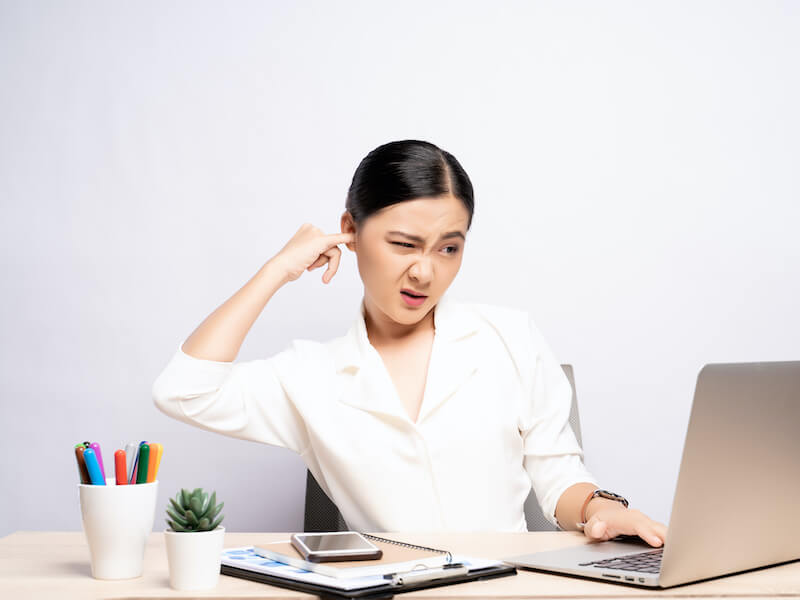
Have you ever had an itch that you just couldn’t scratch?
Okay, there are two ways to think about it: First, you think about something you always wanted to do in life but you never got around to (skydiving, for instance). Or, that itchy spot on your back that you just can’t manage to reach may spring to mind.
That’s kind of a terrible experience, right? Feeling that itch and being desperate to scratch that spot on your back. That’s why we invented back-scratchers.
Regrettably, when you’re dealing with an itchy ear, there isn’t any device that will get at it. Regardless of how hard you try, you just can’t reach up into your ear canal where it’s itching. If you’re ear itches in this way, it’s even more aggravating than that spot on your back.
Your everyday life can be impacted by itchy ears
At first glance, it sounds like a small thing. It’s only itchy ears, right? At least you’re not in horrible pain.
Here’s something to consider: There’s no alleviation for an itchy ear. No fuss, if it only occurs from time to time. But what if your ears are always itchy? It might end up having a significant affect on your quality of life.
Perhaps you stay home and quit interacting with friends. Or perhaps you try to overwhelm the sensation by listening to excessively loud music.
It’s not fun at all. But there are solutions and treatments. Discovering the best way to deal with itchy ears means understanding what causes them in the first place.
So what are some of the causes of itchy ears?
So what’s causing that itch? And what’s the treatment? The solution for itching ears is going to differ depending on the root cause. As with many other medical conditions, there are numerous possible underlying conditions that may be impacting your ears. Amongst the most prevalent are the following:
- Skin disorders: Certain skin disorders can, at times, cause itching that is hard to get to. There’s even a condition called ear dandruff that can happen. You should consult your doctor about what your options are. It isn’t exactly simple to slather your ear canal with moisturizer, after all, nor would we ever recommend you try. Once again, your provider will be the best one to help you manage skin conditions that trigger itchy ears!
- Allergies: Allergies are tricky, and it’s not unusual for them to trigger itching. In some instances, an over-the-counter allergy medicine, like an antihistamine, can ease itching due to allergies. It can be difficult to pin down, sometimes, precisely what you’re allergic to. But a great many allergens, including pollen, can trigger itchy ears. Itchy ears could quickly come from your spring hay fever. If the itching continues, you should consult an allergist about finding a solution (and relief).
- Improper hearing aid fitting: Your hearing aids should fit in your ears snugly. That’s how you get the best sound and the most effective results. But when your hearing aids don’t fit correctly, this snugness can quickly turn to irritation and itchiness. Your hearing can be negatively impacted if this causes you to stop using your hearing aids as frequently. The solution is to come in and see us for a proper fitting. We may even be able to mold your hearing aid so it fits your ear better.
- You have an earwax blockage: Look, it’s completely normal for your ears to create a prodigious amount of wax. You might be surprised to learn that wax is actually cleaning your ears. But there are a number of reasons why blockages can develop. One thing you should stop doing right away is using cotton swabs to “clean” your ears. In any case, we should be able to clear up most earwax blockages. So scheduling an appointment can help give you some relief.
- Ear infections: That’s correct, the source of your itchy ears could be a normal ear infection. Common in youth, ear infections can continue to happen at any age. And when they do, fluid can accumulate in your ears. Along with accumulation of fluid, inflammation of the tissue can take place. Really itchy ears can be the outcome of this trapped fluid and irritated tissue. The fix is to consult your doctor and address the underlying infection. Your ears will usually stop itching when the infection clears up.
Finding relief for your itchy ears
Just about every activity becomes less enjoyable with itchy ears. Finding the best treatment, and getting sustained relief can be absolutely life changing. If you try to just wait it out, you will most likely extend your suffering because it’s not likely that the itching will go away on its own.
If you decide that your itchy ears are driving you nuts, make an appointment with us so you can stop focusing on the itch, and get back to the normal, everyday activities you like.